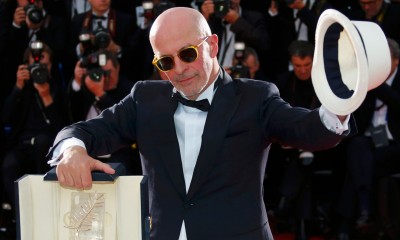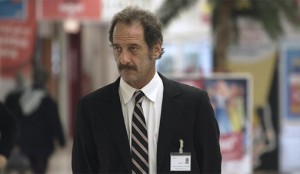A Cannes Film Festival that opened with one French director has ended with another taking the top prize; at the fourth time of asking, Jacques Audiard, who most recently impressed at Cannes with A Prophet and Rust and Bone, has finally won the Palme d’Or for Dheepan, a gritty drama about Sri Lankan refugees starting a new life in Paris.

The winner surprised many critics, with Screen International’s aggregate of ten reviews for each of the nineteen competition films puttin Todd Haynes’ lesbian drama Carol and the Taiwanese period piece The Assassin way in front of their rivals. But, as Joel Coen, who chaired the jury along with his brother Ethan, pointed out, “This isn’t a jury of film critics. This is a jury of artists who are looking at the work.”
On accepting the honour, Audiard said, “To receive a prize from the Coen Brothers is something pretty exceptional. I’m very touched.” He also thanked the Austrian director Michael Haneke for not making a film this year; The White Ribbon and Amour beat Audiard to the Palme d’Or the last two times he was nominated.
The jury gave the second prize, the Grand Prix, to a first-time feature director, Hungary’s László Nemes, for his Holocaust film Son of Saul. The third placed Jury Prize was awarded to Greece’s Yorgos Lanthimos, for his part-BFI-funded surreal, dystopian romance, The Lobster.

Winning the Palme d’Or excludes a film from the other categories so that the spoils are spread, opening the way for the Best Actor prize to go to Vincent Lindon for The Measure of a Man, a social morality tale about a man who finally manages to get a job, which threatens to put other people out of a job. The Best Actress prize was shared between Rooney Mara, Cate Blanchett’s love interest in Carol, and Emmanuelle Bercot, the star of Mon Roi, but also the director of the opening night film, Standing Tall. The French prime minister Manuel Valls responded to the honours for Audiard, Lindon and Bercot by tweeting that French cinema was shining in Cannes this year.
With Mara giving a nod to one of the critics’ favourites, the other, The Assassin, received the Best Director prize, for Taiwan’s Hou Hsiao-hsien. And Michel Franco won the Best Screenplay award for Chronic.
The Camera d’Or, which is awarded to the best first feature across all the strands of the festival, went to Colombia’s César Augusto Acevedo for La Tierra y la Sombra, which screened as part of the Critics’ Week selection.
The more art-house-leaning Un Certain Regard sidebar of the festival was won by the Icelandic drama Rams, set among farmers and their sheep in a remote valley. The jury, led by the actress Isabella Rossellini, gave its second prize to the Croatian director Dalibor Matanic, for Zvizdan, or The High Sun, which explores love and ethnic rivalries in the Balkans. Rossellini said that judging the nineteen films in competition was “like taking a flight over the planet and seeing all its inhabitants and their emotions.” “I think we are the envy of every anthropologist,” she added.
And one of the more tongue-in-cheek awards handed out at Cannes – not by any official jury, it has to be said – is the Palme Dog, for the best performance by – you’ve guessed it – a dog. Lucky, a cross between a Maltese terrier and a poodle, took the honour for the three-part Arabian Nights. Bob, the shepherd dog from The Lobster, who – and you’ll need to see the film to understand this – played the brother of Colin Farrell’s character, was one of the runners up.
